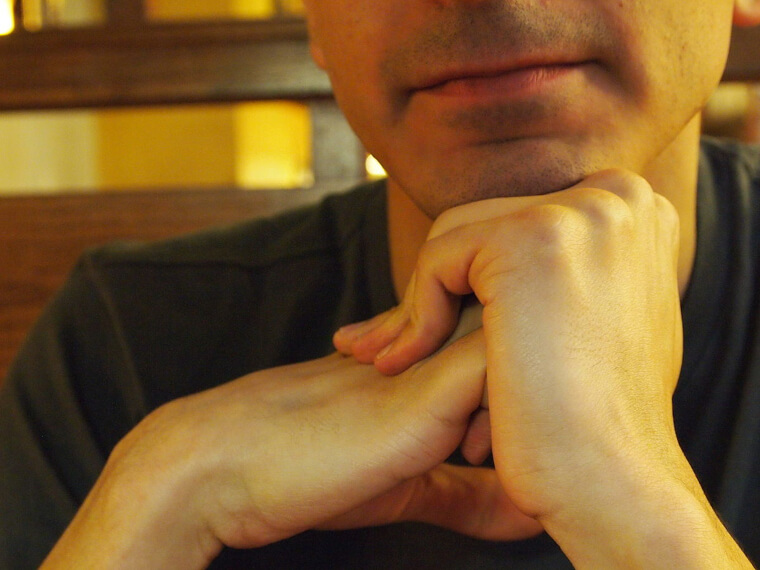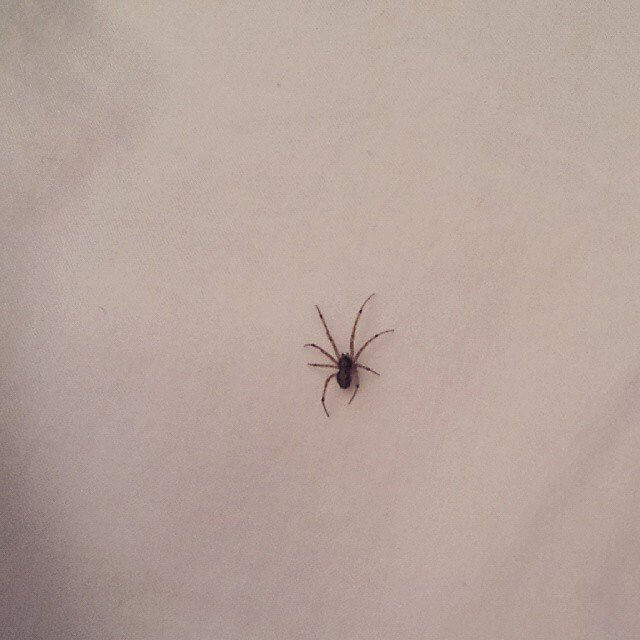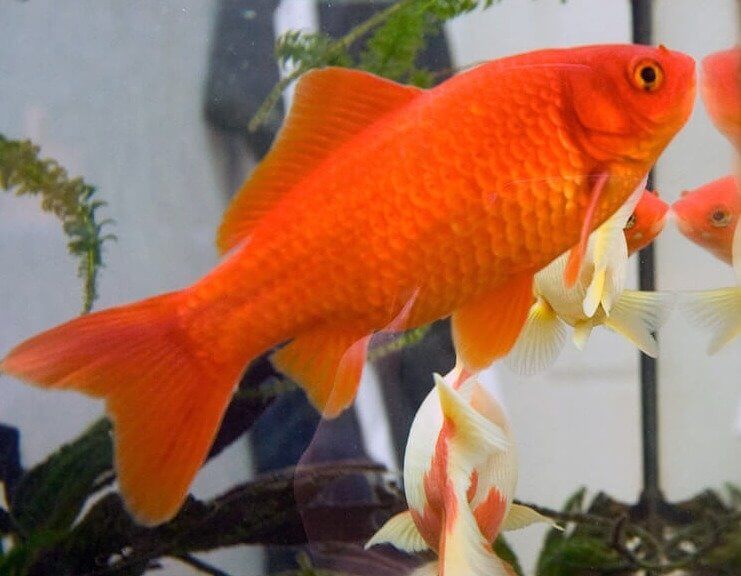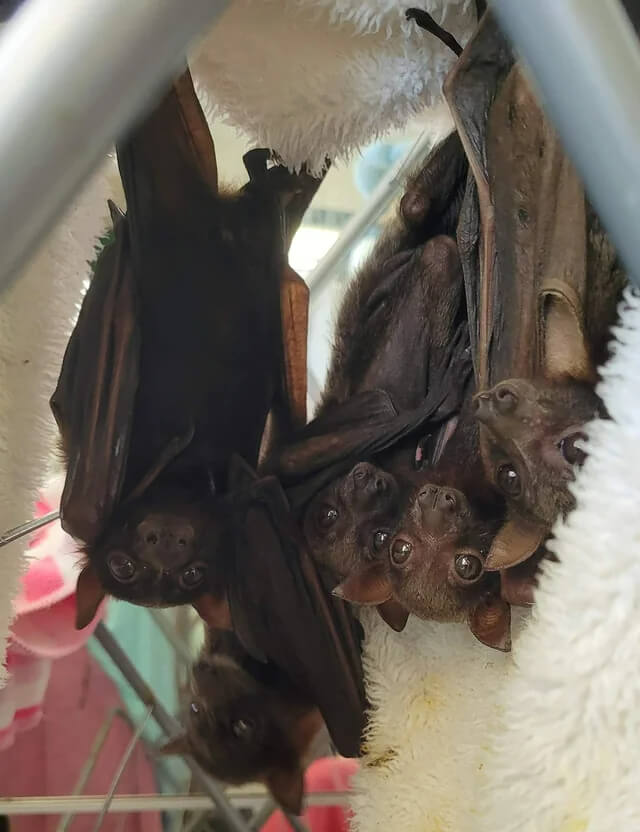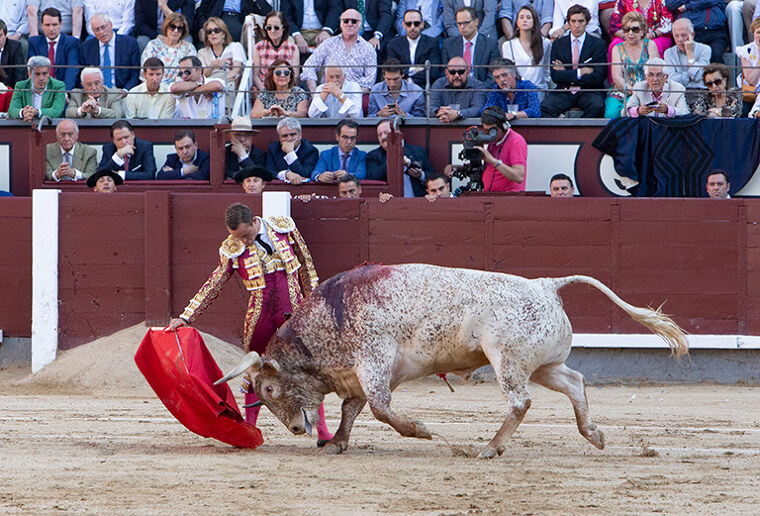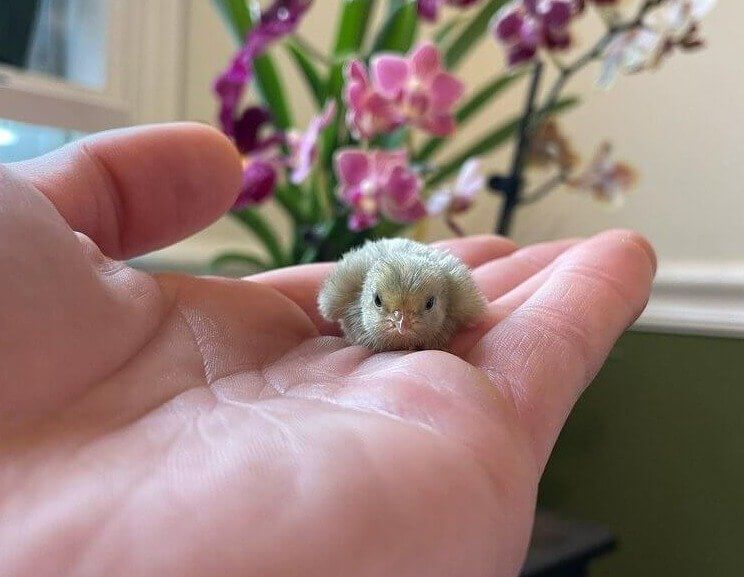Eating Carrots Improves Your Vision
In a blow to parents all over the world trying to convince their kids to eat vegetables, we have to break the news to them that, unfortunately, eating carrots does not improve vision. The long-held belief that munching on Bugs Bunny's favorite snack gives you super eyesight is misleading; there is an element of truth in that the beta-carotene found in carrots can be converted to vitamin A, but your body can only convert so much.
This isn't to say that carrot consumption or a diet consisting of lots of vegetables isn't a good thing, but the vision-enhancing "superpower" reputation of carrots is likely to be a mom-made myth!
Going Outside With Wet Hair Makes Your Sick
There are some old wives' tales that just seem to stick, no matter how debunked they are by science, and the myth that heading outside with wet hair will give you a cold is certainly one of them. The reason, we think, is that it seems plausible and, therefore, sensible advice. A cool breeze against a wet head of hair genuinely feels uncomfortable, so believing there will be health repercussions makes sense.
Fortunately, for those of you who like to dash out of the house straight after a shower, there is no truth in the wet hair warning. Both the common cold and the flu are caused by viruses, so your damp hair can't be to blame.
Consuming Sugar Makes You Hyperactive
The debunking of this commonly held assumption is likely to have parents up in arms, but no, sugar consumption does not make kids — or adults, for that matter — hyperactive. Ever since the dawn of children's birthday parties, sugar has been the bete noire of parents who blame it for their kids running around like lunatics. Turns out, however, that all those cupcakes and cookies aren't to blame for unruly behavior.
That being said, curbing sugar intake is still a good idea since the highly-addictive substance is certainly responsible for a raft of health issues, including diabetes, obesity, and rotting teeth.
Dogs and Cats See in Black and White
It's a real mystery where the longheld belief that dogs and cats see in black and white came from, and the myth has been debunked for well over 50 years. Yet this bizarre belief still prevails, presumably a hangover from childhood where most people learn their first facts about family pets. Sure, dogs and cats can't see colors as vividly as their human counterparts, but they can certainly see a decent range.
It's funny how fallacies — especially around household pets — seem to stand the test of time, even after breakthrough discoveries and well-publicized debunkings by researchers and scientists.
Swimming After Eating Gives You Stomach Cramps
Anyone who has been on a family holiday where there is a swimming pool can probably relate to their parents warning them of the dangers of jumping in for a swim too soon after eating. It's unclear where this fear came from, as there is no evidence to suggest that swimming directly after food leads to cramps — and, therefore, a risk of drowning or any other unpleasant reaction.
While the body does need to divert some blood flow from the limbs to aid with digestion post-food, it isn't enough to cause any serious cramping. Anyone fancy a dip?
Drinking Coffee Stunts Your Growth
Coffee lovers around the world can breathe a sigh of relief! The long-held belief that everyone's favorite source of caffeine can hinder the growth of our bodies is, in fact, nonsense. While there is a legitimate link to calcium loss, regular — or even considerable — coffee consumption wouldn't be enough to affect your bones, so the next time you're considering whether to have that extra cappuccino, go for it guilt-free!
In fact, there have been numerous medical studies around coffee and how it affects the human body, one of which suggests that four a day is the optimal amount to ward off multiple common diseases, including premature death.
Drinking Milk Creates Mucus
Let's file this one away in the "old wive's tale" draw because consuming milk doesn't prompt your body into creating mucus. Sure, milk might make your phlegm seem thicker, but that's due to its heavy consistency. Much like eating yogurt or peanut butter, your saliva glands will react in a certain way, but you certainly won't go into mucus-making overdrive. If for whatever reason, you do want to produce more mucus, the easiest way to do it is by catching a cold!
Now, sit back and relax with a cold glass of milk and a delicious warm cookie. Trust us; it will taste much better guilt-free!
Cracking Your Knuckles Causes Arthritis
Let's be honest; there will be plenty of people relieved to hear that cracking knuckles does not, in fact, cause arthritis! A very common habit, people often crack their knuckles (the air in between them causes them to "crack") when they're anxious or thinking about something, but fortunately, according to a 2011 publishing in the Journal of the American Board of Family Medicine, there is no link between knuckle cracking and arthritis.
It's easy to understand why this common correlation is believed, as occasionally clicking your knuckles can be quite painful, feeling like some kind of lasting damage is being done.
The Tongue Has Different Taste Sections
Not that we think about such things when we're eating, but most people believe that our tongues are divided into taste bud "sections" — sweet, salty, sour, and bitter. That commonly-held belief is untrue, according to expert research. Rather than our specific taste buds being sectioned off, they are dispersed all over the tongue, so no matter where food or drink makes contact, our brains can immediately sense the taste.
As well as taste, our smell is also an incredibly important sense when it comes to enjoying — or disliking — food and drink. Anyone who has ever had a blocked nose can relate to this!
Drinking Alcohol Kills Brain Cells
You can almost hear the collective roar of celebration from bars around the globe as we debunk the popular myth that drinking alcohol kills brain cells. While booze does have the ability to damage dendrites and make it increasingly difficult for the neurons to communicate, your brain cells won't be "killed off" per se. It is definitely worth pointing out here that excessive alcohol consumption can lead to a whole host of problems, however.
Perhaps people assumed alcohol kills brain cells due to a regular result of overconsumption — the dreaded hangover. A hangover can certainly give you a fuzzy head, to say the least, but thankfully, it's temporary.
People With Red Hair Are Going Extinct
Sure, redheads are pretty rare — unless you visit the Celtic heartlands of Ireland or Scotland, that is — but the notion that they're "endangered" is a slightly ridiculous fallacy. The red hair gene is recessive, meaning that it's passed from both parents onto their children. Unless redheaded couples stopped procreating for some bizarre reason, there isn't any chance that people with red hair are going to be extinct any time soon.
This rumor probably began when it was suggested that redheaded people seemed to be fewer in number than decades ago, which might well be true. Going extinct, however, is going a little far!
You Only Use 10% Of Your Brain
It's unclear where the belief that we only use 10% of our brain comes from — some kind of pseudo-science, perhaps? This commonly parroted myth has zero truth to it. In fact, the opposite is true; humans use virtually every percent of brain power pretty much all of the time. Our most vital organ, the brain, only accounts for 3% of body weight, yet burns through an astonishing 20% of the body's energy.
If there was a human out there, functioning efficiently, who was only using a tenth of their brain capacity, then their full potential would make even Einstein look simple!
Shaved Hair Grows Back Thicker
This feels like one of those beliefs that, no matter how many times it's proven to be untrue, people still want to believe it. Not such a problem for guys with facial hair — or with thinning head hair, for that matter — but for ladies concerned about shaving their legs or armpits, fear not; the shaving process will not prompt your hair to grow back thicker. Finally, you can relax!
We're not sure where this myth came from, to be honest. The only adverse effect shaving can cause, aside from the cuts and grazes, is a blunt tip, which can make stubble feel scratchy.
Toilets Flush in Different Directions Depending on Which Hemisphere They're in
Anyone who has visited the northern hemisphere from the south, or the southern hemisphere from the north, has probably tested out the rumor that toilets flush in the opposite direction. If you have tried that, then you should already know that this is an amusing myth. That being said, the angle at which the water enters the toilet bowl is different depending on the hemisphere, so you could be forgiven for thinking it's a direction difference.
We like to think that people have put this flush fallacy to the test whilst on the Equator. If it were true, surely the flush would simply go straight down rather than in a specific direction?
Poinsettias Are Lethal
Parents (and pet owners), you can relax. Contrary to popular belief, poinsettias are not actually deadly. The popular festive flower has grown a lethal reputation over the years, and it's not entirely clear where it's come from and how it continues to be the case. Every year, people fret about decorating their homes with poinsettias, but the reality of what would happen to a toddler or a dog if they were to eat a couple of leaves is not so dramatic.
The plant has an irritating sap that can cause an upset stomach or mild skin rash, but research has found that the plant is not toxic and won't cause any long-term damage.
Drinking Alcohol Warms You Up
You might have heard about people keeping warm in the deepest winter in Eastern Europe by drinking vodka. Well, the alcohol might have helped numb the feeling of cold, but it wouldn't, in fact, help warm those people up. It's a common myth that drinking alcohol helps keep us warm — in fact, it slows down your circulation and actually makes you colder. Still, its ability to numb the pain is undeniable.
Centuries ago, alcohol was used on battlefields and in hospitals to help numb the pain of wounds and operations. Today, we have drugs designed to do that in a far more controlled way.
Drinking Coffee Dehydrates You
Again, another myth busted that will be music to coffee lovers' ears! Drinking coffee neither stunts your growth nor does it dehydrate you – after all, coffee is predominantly made up of hot water, which offsets any dehydrating properties in the caffeine. This all being said, knocking back six espressos in a row might have you feeling slightly light-headed — although that can't be blamed on dehydration!
As we've already discussed, approximately four coffees per day are good for overall health, so it's not a drink to shy away from. Staying hydrated with water is also essential, however.
Gum Takes Seven Years to Digest
Another old wives' tale, there is no truth to gum taking years to digest in your stomach. Most of us can probably relate to the panicked moment we first swallowed a piece of chewing gum. Usually, a teenager or possibly younger, we likely still believed the myth that it would sit there in your stomach for years and years without any discernable way of getting rid of it!
Fear not, gum lovers. Much like the fiber in popcorn kernels, the gum isn't actually digestible, so it will simply pass through your body without any attempt made to digest it. Easy.
You Swallow Approximately 8 Spiders in Your Sleep Every Year
Let's be honest; this is a myth we're very happy to have debunked. Most people — heck, surely everyone! — would be creeped out at the idea of a spider crawling into their mouths while they sleep, and, fortunately, it isn't true. It's easy to understand how and why this rumor spread so fast, as it's such a great way to freak people out, but there are numerous reasons why it's implausible.
Firstly, spiders generally try to avoid humans — and our beds. Second, the logistics of swallowing a live spider whilst staying asleep are almost impossible. So, eight times a year? No chance.
Germs Live on Toilet Seats
Well, this is a common belief that you'll be very happy to hear is definitely not true! Most people think that germs linger on toilet seats, and for a good reason. Anyone who has had to use the facilities at a gas station or shopping mall (which is pretty much everyone) can attest to the fact that the restrooms feel anything but clean. Those bathroom stalls feel like a petri dish for germs.
However, the germs that might have found their way onto the toilet seat from a previous occupant will be long gone before your arrival, as they will only survive for a few seconds. Phew!
You Can See the Great Wall of China From Space
Sure, the Great Wall of China is pretty big. In fact, it's enormous. But the common misconception that the 13,000-mile construction can be seen with the naked eye from space isn't true. NASA confirmed this back in 2004 when it declared that the wall was only visible with the use of aid when looking at earth from the International Space Station. Although, to be fair, that's still pretty impressive!
When the Great Wall was opened in 220 BC, the least of the Chinese dynasty's concerns would have been whether the structure was viewable from space; rather, whether it could keep out invaders from the west!
Napoleon Bonaparte Was Short
Napoleon Bonaparte's height is such a famous characteristic of the legendary military commander that he even has a psychological condition — Napoleonic complex — named after him. In fact, the Emperor's height is misleading, according to historians. Napoleon famously measured a mere 5'2, but this measurement was in old French inches, which were longer than English inches. Confusing, huh? Doing the conversion would put Napoleon at 5'7 as we know it.
5'7 for a male isn't particularly short, especially in the 18th Century when people generally weren't as tall as they are today. Still, no need to spoil a much-loved myth for the sake of a few inches, right?
Mount Everest Is the World's Tallest Mountain
Nepal's famous Mount Everest (Sagarmāthā in Napalese) is widely considered to be the tallest mountain on earth, and it is certainly the most famous. However, Mauna Kea in Hawaii is almost a mile taller than Everest when you factor in the 19,700 feet of it that exist hidden underwater in the Pacific Ocean. To the human eye, however, it is understandable why Everest is considered the "tallest," especially when seeing it from an expedition perspective.
Summiting the giant of the Himalayas becomes a more popular "bucket list" challenge year after year as advances in technology allow increasingly inexperienced climbers to attempt the famous ascent.
Carbs Are Bad for You
Yes, you read that right. Contrary to what we are constantly told, carbs aren't actually that bad for you! Rejoice! First and foremost, carbohydrates are an essential part of our diet that provides us with the energy we need to function. In fact, complex carbs — fruits, vegetables, grains — should form the base of any healthy meal. When people talk about carbs in a negative way, they're referring to the simple or refined ones.
You probably already know who the main offenders are, but we're talking cookies, cakes, pastries, and pizza. The problem? These types of food are just so irresistible!
Goldfish Have a Three-Second Memory
This might be the most commonly misunderstood "fact" on this list. Most kids are exposed to goldfish from an early age, where they are taught that everybody's favorite first pet has a mere three-second memory, and this myth seems to carry on into adulthood, where the saying "memory of a goldfish" is commonly used to describe someone who is forgetful. But no, research carried out on goldfish showed their memory is surprisingly good!
Due to the three-second fallacy and their slightly gormless expression, goldfish are often depicted as fairly simple creatures, whether in movies or books. This is an unfair depiction, however, of a smart little fish.
Toads Will Give You Warts
Poor old toads have had a terrible reputation for centuries, much in part because of the myth that they transmit warts to humans! Even though these little creatures look quite, well, warty, they won't pass anything like that on. What looks like warts are, in fact, glands. The wart rumor stems from HPV — human papillomavirus — of which there are over 170 strains, but the link to the toad is unfounded.
While we're here, it's probably worth pointing out that kissing toads or similar amphibians won't magically turn them into a prince, either. Two myths busted faster than a toad can say, "croak!"
Einstein Failed His Math Exam
We're not entirely sure why people choose to believe the legend that Albert Einstein failed his math exam. Perhaps it's to show that even geniuses are mortal? Unfortunately, for the naysayers, Einstein never failed his chosen subject — the part of the entrance exam for a polytechnic college in Zurich that he failed was the subjects other than math! Let's be honest; it's pretty unlikely that the person who developed the theory of relativity failed a math exam.
It's kind of amusing to imagine Einstein taking exams as a young man. After all, the image we tend to have of the physicist is as an older gentleman with trademark wild white hair.
Bats Have No Eyesight
"I'm as blind as a bat" is a phrase often uttered by people complaining that they have poor eyesight. Contrary to popular belief, though, bats can actually see very well — some of the larger species three times better than us humans, in fact. The reason bats have developed their "blind" reputation is that their hearing is so unbelievably good they tend to rely on that as a primary sense.
So, the next time you hear someone comparing their bad sight to that of a bat, you can politely correct them and improve the reputation of the billions of bats on earth!
Bulls Don't Like the Color Red
If you've ever seen any footage or photos of a Spanish bullfight, you'll be familiar with the red cape that the matador waves around to antagonize the bull into charging toward him. It's an extremely common misconception that the reason the bull charges at the cape is due to its color — red. "Like a red rag to a bull" is also a saying to describe a person's angry reaction to something.
However, there is no evidence that suggests bulls don't like the color red. They actually get antagonized by the motion of the cape at around their head height; the color is all for show.
You Can Only Get Cancer if a Family Member Has Had It
As far as misleading assumptions go, we really wish this one was true. Unfortunately, however, no human is immune from the awful reality of cancer, whether it runs in the family or not. In fact, research shows that only 5 to 10 percent of cancers are passed down hereditarily, so the likelihood is that a cancer diagnosis for someone will be the result of genetic changes that occur throughout their lifetime.
In truth, avoiding cancer is impossible to guarantee, even if you lead a healthy lifestyle. There are ways to mitigate your risk, however, such as taking regular exercise and getting plenty of sleep.
A Baby Bird Will Be Abandoned by Their Parents if Touched by a Human
A frustrating myth, certainly in the twitcher community, is that baby birds are abandoned by their parents if they have physical contact with a human. While this has been disproven, it's probably not a bad way to keep people away from bird nests nonetheless. Even though a fledgling's mother will smell the scent of a human on their baby, it doesn't mean they will no longer take care of it, so don't worry.
If you do come across a baby bird, the best thing you can probably do is leave it alone. Just because you can't see the adult birds does not mean they're not there.
Every Person Died Young In The Middle Ages
Yes, plenty of people in the Middle Ages pushed up the daisies at a pretty young age, but then again, so do people nowadays. Major events like the Black Death and a general lack of modern medicine certainly made staying alive more difficult once an infection had occurred, but this is only half of the story. The reason why average life expectancy in the Middle Ages was so low is due to the high rates of infant mortality, which massive skews the stats.
In fact, people who managed to survive through infancy and all of the other precarious events, such as disease and war, could live to a ripe age into their 70s or 80s.
Sharks Can't Get Cancer
A misleading myth designed to promote sales of shark cartilage; contrary to what you might have heard, sharks can and do get cancer. In fact, scientists have known for over a century that this is the case, but sadly the lie pervades. Like any fish or mammal, sharks are susceptible to disease and ill health, so it would be extremely curious if they were somehow resilient to one of the most common diseases on earth.
If sharks actually had a super ability to avoid cancer, then they would probably be one of the most researched creatures alive today, as humans would be seeking to understand how we can become immune too.
Ostriches Stick Their Heads in the Ground When They're Scared
When you think of an ostrich, the big furry bird with skinny legs, you probably imagine it sticking its head in the ground in fear. Well, they do stick their heads in the ground, but it has nothing to do with them being scared. Rather than keeping their eggs in nests like most birds, ostriches store them in holes in the ground and use their beaks to move them around.
Like bats and their (actually pretty good) eyesight, ostriches have been given an unfair reputation by humans. These big birds are, in fact, incredibly brave and surprisingly strong creatures too.
Duck Quacks Don't Echo
We're not exactly sure where this myth first came from, but the longstanding belief that duck quacks don't echo was finally corrected in 2003 by Trevor Cox, an expert in techniques used to diffuse echoes from the acoustics research center at the University of Salford. The professor was confused that people genuinely thought a duck's quack didn't echo, so he set about debunking the myth and explaining how it might have come to be.
Essentially, a duck quack is pretty quiet, which minimizes the reverberation it makes when inside a confined space. Unlike a loud horn, for example, this reverb is difficult to hear, but it is nonetheless!








